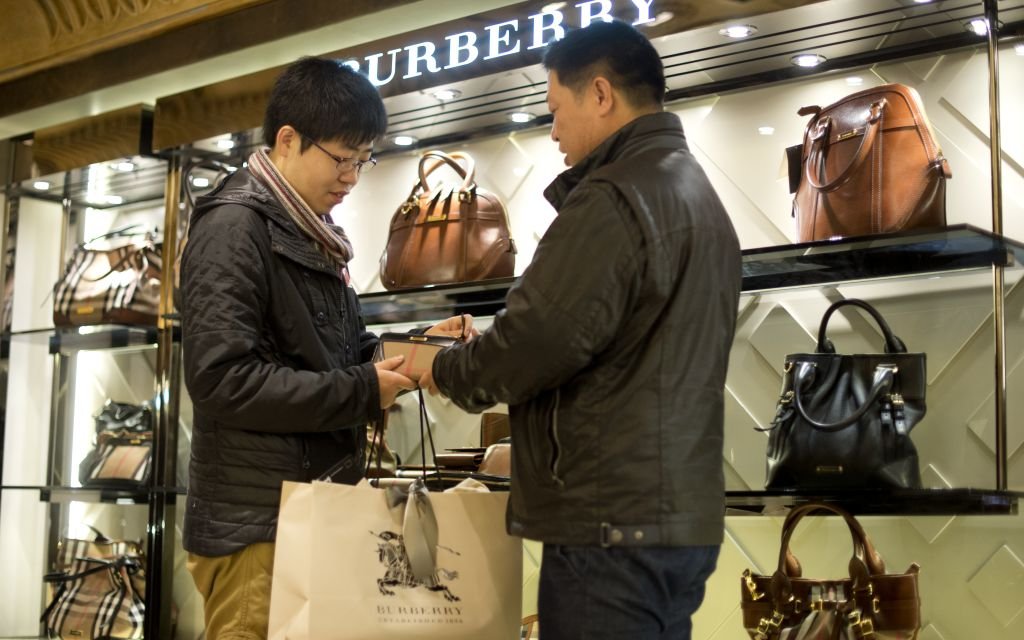London Fashion Week kicks off as China slowdown is becoming an increasing headache for luxury brands

Friday marks the start of London fashion week, when luxury brands flaunt their Spring/Summer collections on the catwalk and throw champagne-fuelled parties to celebrate the arrival of the next fashion season.
But behind the scenes, the party mood is more subdued as luxury companies nervously assess how great an impact the ongoing economic slowdown in China and the knock-on effect on European markets will have on their sales.
The central bank’s decision in August to try and boost flagging exports by devaluing the renminbi added fresh woes to what has already been a challenging two years following the government’s clampdown on gift-giving and the pro-democracy protests in Hong Kong.
And with 30 per cent of sales on average derived from Chinese spenders, the impact that any volatility in the world’s biggest economy can have on the sector is significant.
The depreciation of the yuan has made imports to China more expensive and the incentive for Chinese shoppers to travel abroad for luxury goods has become less appealing.
Investors have reacted by selling off shares with companies including Burberry, Prada, Jimmy Choo, watches and jewellery giant Groupe Richemont and Gucci owner Kering all recording double-digit declines since the start of the year.
“The luxury industry is one of the most exposed industries to macro trends in China,” Deutsche Bank analyst Francesca Di Pasquantonio said in a recent note.
“A weaker yuan not only affects the companies’ profit and loss accounts directly and could depress Chinese consumers’ overall spending ability, especially given that two-thirds of luxury spending is done abroad, but it could also nourish concerns that China’s economy might, in fact, be faring even softer than believed.”
She estimates that a five per cent depreciation of the yuan against all currencies could have a potential negative impact on profits of around four per cent.

The depreciation of the yuan has made travelling abroad for luxury goods less appealing (Source: Getty)
However analysts at Japanese bank Nomura stressed that there were other issues besides China’s currency woes that could have implications for the luxury sector. Weakness in other emerging market currencies and the strengthening of the euro could also pose wider risks.
“The dislocation of emerging market currencies has become pronounced, with the Russian rouble, Brazilian real, Mexican peso and the Korean won all weakening,” Nomura’s Christopher Walker said.
“With US rate rises now priced further out, US dollar weakness combined with euro strength has built in a partial reversal of year to date currency gains for luxury names.”
Nomura warned that Burberry, Prada, Adidas and Puma were the companies most at risk from lower earnings given their higher exposure to Asia while LVMH and Moncler are the least vulnerable. Walker said this concoction of currency issues could lead to further sector downgrades.
Richemont, which owns brands including Cartier and Montblanc, will release a trading statement tomorrow, with analysts at Berenberg warning of a challenging year for the group given its higher exposure to Asia.
Meanwhile Prada will release its half year results today. The Hong Kong-listed group has seen profit margins fall in recent quarters and has been trying to negotiate lower rents in Hong Kong and Macau to reflect weaker sales.
Despite short-term challenges, City analysts remain upbeat about long term growth opportunities for luxury goods groups, with British brands in particular continuing to resonate strongly with international shoppers.
Research out yesterday shows no let up in overseas spending to the UK, with international shoppers splashing out £18bn per year on luxury property & retail in London alone.
Retail spending in the capital by Chinese shoppers is up nine per cent year-on-year, the research by estate agency Rokstone and tax free shopping experts Global Blue said.
London Fashion Week is a platform for the next generation of fashion designers as well as established luxury names to showcase their work. For many, economic troubles abroad will be just a speck on what they see as an increasingly bright future.